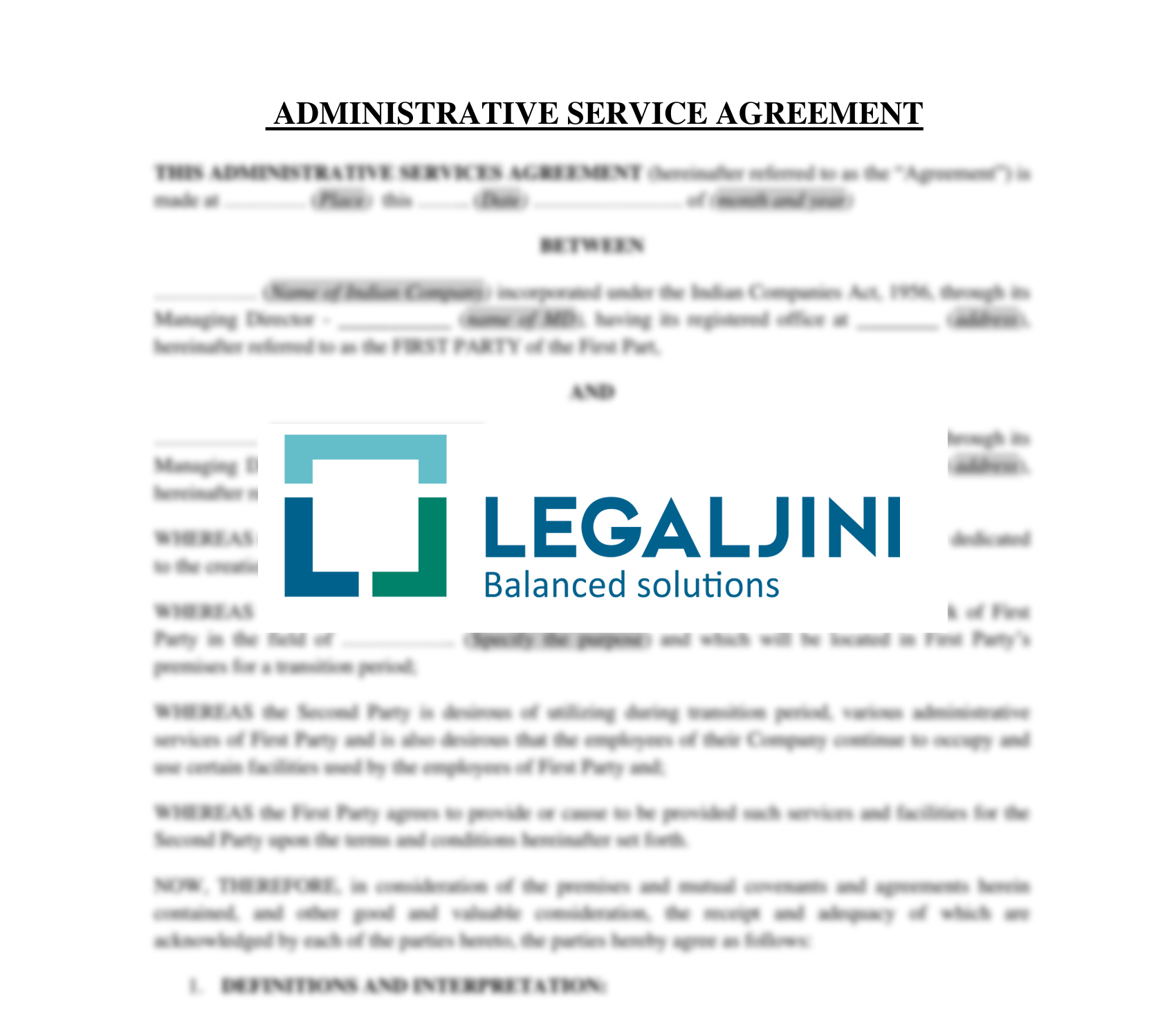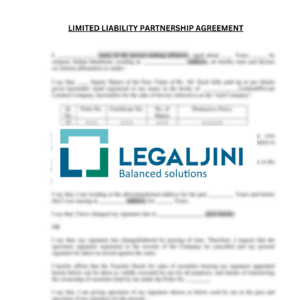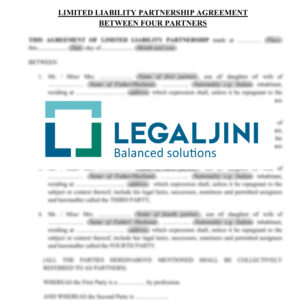Facilitate a clear and mutually beneficial administrative service relationship with our Administrative Service Agreement. This document defines service scope, fees, duration, and responsibilities, ensuring transparency and a harmonious working partnership.
We specialize in administrative service agreements that streamline operations, mitigate risks, and ensure compliance. Our business-specific templates are designed to meet all your requirements, enhancing efficiency and clarity in all administrative functions.
Service Agreement
A service agreement is a legally binding contract between two or more parties that outlines the terms and conditions under which services will be provided. This service agreement contract defines the scope of work, the responsibilities of each party, and the compensation for the services rendered. Service agreements are critical in setting clear expectations, avoiding misunderstandings, and providing a framework for resolving disputes. They can be used in various contexts, including business-to-business services, independent contractor arrangements, and more. By clearly defining the services to be performed, deadlines, and payment terms, service agreements protect both the service provider and the client, ensuring that all parties are on the same page from the outset.
Different Aspects of Service Agreements
Service level agreement- A service level agreement (SLA) is a specific type of service agreement that focuses on the measurable aspects of a service, such as quality, availability, and performance standards. SLAs are commonly used in industries like IT, telecommunications, cloud services, etc, where the performance of services is critical to business operations. An SLA typically includes metrics for uptime, response times, resolution times, and penalties for failing to meet agreed-upon standards. The purpose of an SLA is to ensure that the service provider meets the client’s expectations consistently and that there is a clear mechanism for accountability. By specifying performance criteria, an SLA provides both parties with a shared understanding of what is expected, helping to maintain high service standards and creating a productive business relationship.
Consulting agreement- A consulting agreement is a service agreement contract that outlines the terms under which a consultant provides professional advice or services to a client. This agreement details the scope of work, the duration of the engagement, compensation, confidentiality terms, and any specific deliverables. Consulting agreements are crucial in industries where expertise and specialized knowledge are needed to solve complex problems or improve business operations. The agreement ensures that both the consultant and the client have a clear understanding of their roles, responsibilities, and expectations. A well-designed consulting contract template can help avoid misunderstandings and disputes by clearly defining the terms of the engagement, ensuring that the consultant delivers the promised services and that the client provides the necessary resources and support.
Administrative service agreement- An administrative service agreement is a specialized service agreement contract that outlines the responsibilities and obligations of an administrative service provider in managing specific tasks or functions for a client. These tasks can include payroll processing, human resources management, compliance monitoring, and other administrative duties essential to the smooth operation of a business. The agreement typically details the scope of services, the terms of engagement, and the compensation structure. Administrative service agreements are crucial for businesses that outsource administrative functions to ensure that these services are delivered efficiently and in compliance with relevant laws and regulations. By defining the roles and responsibilities of both the service provider and the client, these agreements help prevent misunderstandings and ensure that administrative functions are carried out effectively.
The Need for a Written Service Agreement
Legal protection- A written agreement serves as a legally binding document that protects both the client and the service provider in case of disputes, providing a clear reference point for resolving issues.
Clear expectations- It sets clear expectations for both parties, outlining the scope of work, timelines, and performance standards, which helps avoid misunderstandings and ensures that the services are delivered as expected.
Accountability- The agreement holds both parties accountable for their responsibilities, ensuring that the service provider meets the agreed-upon standards and that the client fulfills their obligations.
Documentation of terms- Having a written agreement documents all the terms and conditions of the service, providing a comprehensive reference that can be used to verify the details of the arrangement.
Professionalism- A written agreement demonstrates professionalism and a commitment to the business relationship, instilling confidence in both parties that the services will be delivered as promised.
Risk management- By detailing the terms of the service and the conditions under which services will be provided, the agreement helps manage risks, including financial and legal risks, by providing a clear framework for the business relationship.
The Importance of Administrative Service Agreements
Clarity of roles and responsibilities- The agreement clearly outlines the duties of the service provider and the client, reducing ambiguity and ensuring that both parties understand their obligations.
Risk mitigation- By detailing the terms of service and the conditions under which services are provided, the agreement helps minimize potential risks, including legal disputes and financial losses.
Compliance assurance- The agreement ensures that the services provided comply with relevant laws and regulations, protecting the client from potential legal issues.
Performance standards- It sets performance benchmarks for the service provider, ensuring that services are delivered at the expected quality and within agreed-upon timelines.
Dispute resolution- The agreement includes provisions for resolving disputes that may arise during the service, providing a clear path for addressing issues and maintaining a positive business relationship.
Cost management- By specifying the compensation structure, the agreement helps the client manage costs effectively, ensuring that there are no surprises when it comes to payment for services rendered.
Who Needs an Administrative Service Agreement?
Small and Medium Enterprises (SMEs)- SMEs that lack in-house administrative expertise can benefit from an administrative service agreement by outsourcing these functions to professional service providers, allowing them to focus on their core business activities.
Outsourcing administrative functions- Companies that outsource tasks like payroll, HR, compliance management, etc to third-party service providers, need an administrative service agreement to ensure that these services are delivered effectively following legal requirements.
Offering administrative services- Service providers offering specialized administrative services to clients need an agreement to clearly define the scope of services, responsibilities, and compensation, ensuring that the business relationship is managed effectively.
Administrative Service Agreement Template
An administrative service agreement template is a pre-drafted document that can be customized to meet the specific needs of a business. It typically includes sections such as the scope of services, terms of engagement, compensation structure, performance standards, dispute resolution mechanisms, and more as per the specific business needs. Using a consulting agreement template can save time and ensure that all critical aspects of the agreement are covered. The template must serve the specific requirements of the business and the services being provided. A well-crafted agreement template can serve as a solid foundation for building a comprehensive and legally sound contract that protects the interests of both the client and the service provider.
Legal Validation of Administrative Service Agreements
The legal validity of an administrative service agreement depends on several factors, including the clarity of the terms, the mutual consent of the parties involved, and adherence to applicable laws and regulations. For an agreement to be legally binding, it must include essential elements such as offer, acceptance, consideration, and the intention to create a legal relationship. The agreement should be drafted in clear language to avoid potential disputes and should be signed by all parties involved. Additionally, it is advisable to have the agreement reviewed by a legal professional to ensure that it complies with relevant laws and provides adequate protection for both the client and the service provider. Using a professional consultancy agreement format can help ensure that the agreement adheres to industry standards and legal requirements.
Getting Started with LegalJini
At LegalJini, we specialize in crafting administrative service agreements that meet the unique needs of your business. Our team of legal experts is dedicated to providing you with comprehensive solutions that ensure compliance, mitigate risks, and enhance the efficiency of your administrative functions. Whether you are outsourcing administrative tasks or providing these services to clients, LegalJini offers the expertise and support you need to succeed.
Contact us today to get started with a customized administrative service agreement that aligns with your business goals.




